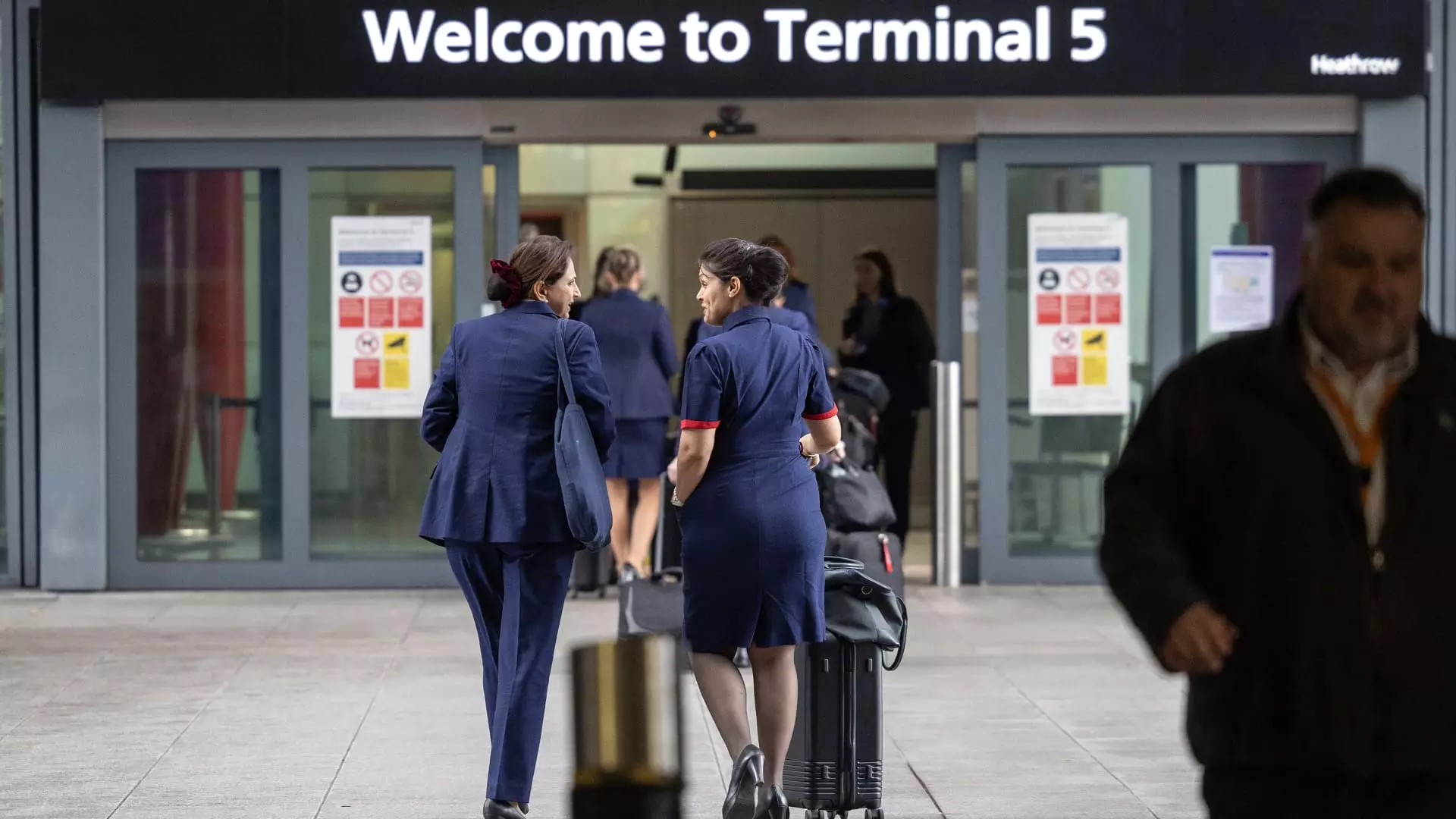On a seemingly ordinary Friday, Heathrow Airport, Europe’s busiest hub, fell victim to a catastrophic power outage. This incident, which stemmed from a fire at a nearby electrical substation, not only canceled more than 800 flights, but also exposed the fragility of modern infrastructure that millions depend on daily. Just as the world celebrated a rebound in travel, this disruption starkly reminded travelers that our systems remain perilously vulnerable. Such a failure indicates not just a singular event but a systemic weakness that ought to be addressed.
Heathrow’s catastrophic day quickly turned into what felt like a dystopian travel nightmare, as passengers were stranded and uncertainty gripped the airport like a suffocating blanket. The reopening on Saturday brought with it a wave of relief, but it also highlighted a grim reality: a power outage at a crucial transportation node could reverberate through global travel economies.
Mismanagement in Crisis Response
The British Airways response to the situation was particularly telling. While they managed to resume approximately 85% of their flights, they warned customers of potential delays, putting the onus on travelers to remain patient amidst confusion. Their promise of “flexible options” for rebooking did little to ease the inconvenience faced by those left wondering whether their travel plans were on life support. In a world where customer service is paramount, the lack of clear communication when crises occur can exacerbate an already volatile situation.
Moreover, the airline industry, much reliant on transparency and trust, suffered a hit to its reputation. Willie Walsh, the former CEO of British Airways-owner IAG, criticized Heathrow for a “total planning failure.” His statement can’t be overlooked; it emphasizes that what was once thought of as resilient infrastructure has now been exposed as brittle and poorly overseen. Who bears the brunt of these operational failures? Travelers were caught in the crossfire, and questions arose as to how airline executives and airport authorities would address the fallout.
The Imperative for Institutional Reform
Heathrow’s incident serves as a wake-up call for policymakers and industry leaders alike. The glaring need for resilient infrastructure cannot be overstated. The National Grid’s pledge to “implement measures to help improve the resilience levels” may sound reassuring, but it begs the question: were we not already making these improvements? How many more upheavals must the traveling public endure before last-minute fixes become a standard practice?
This unease at such critical infrastructure should kick-start conversations around diversification of power sources for airports and national grids. Dependence on a single power line is not just a logistical oversight; it’s a reckless gamble that risks the lives and plans of thousands. In light of this incident, the call for a comprehensive infrastructure audit emerges as a vital necessity—a proactive approach that should have been entrenched in our operational playbook years ago.
Beyond Accountability: A Call for Shared Responsibility
Amidst the chaos, the need for shared accountability between airlines and airport authorities became apparent. The present model places the burden of cost on airlines, which have been painted as the unscrupulous villains in this narrative. Considering that such infrastructures are the lifeblood of air travel, it’s time for an evolved framework where both airlines and airport authorities collaborate to shield passengers from fallout when operational challenges arise.
Retrospective analysis frequently leads us to blame airlines for service failures when systems crumble. However, as this crisis has unfurled, it becomes increasingly evident that it’s not merely a tale of one fallen giant but a collective reflection of an industry that has to rethink its approach. Forging a partnership between all stakeholders in air travel to share costs and responsibilities could transform the future of travel.
The Broader Implications for the Industry
The ramifications of Heathrow’s power outage extend far beyond the immediate inconvenience experienced by stranded passengers. The incident has shaken consumer trust, displaced families, and thwarted business travelers on vital trips. It’s also drawn attention to the urgent need for enhancements in infrastructure that will make the travel experience smoother and safer.
Given the trend of increasing air travel globally, it is imperative to question whether airports like Heathrow are prepared for an escalating demand. It is not merely about returning to normal operations but about redefining what ‘normal’ should mean in the 21st century.
In a world that is becoming increasingly interconnected, the reliability of our critical infrastructure needs to be fortified. Without a concerted effort towards resilience, we risk not just flights canceled but memories and moments lost in the chaos of delayed and disrupted journeys.


Leave a Reply